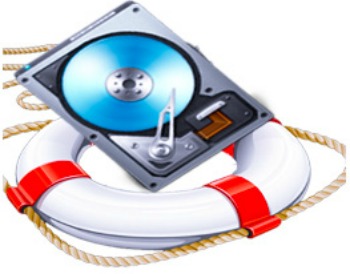Data has evolved to become a truly precious commodity now. The word meant little to us a decade ago and we would likely relate it to plain information but it holds more power in our modern tech-crazed society now. Smart gadgets are life. The Internet is the place to be. Data is everything here. You need data to access the web and you create data from all the files you share online or input on your computer – from that high school photo you can’t wait to post next Thursday as your throwback picture or that entire collection of movies you’ve accumulated through the years to the important documents that signifies all your achievements in life.
 We value all this data highly and will move heaven and earth to get them back in the unlikely case of losing it or having it accidentally deleted. Data recovery is the process of salvaging your lost data whatever the reason may be. While some brave souls attempt to recover their lost data by themselves, it is always advised to have an expert look into it to avoid the risk of permanent data loss.
We value all this data highly and will move heaven and earth to get them back in the unlikely case of losing it or having it accidentally deleted. Data recovery is the process of salvaging your lost data whatever the reason may be. While some brave souls attempt to recover their lost data by themselves, it is always advised to have an expert look into it to avoid the risk of permanent data loss.
With data recovery, prevention really is the best medicine. Companies that put in place the best plans and tools to protect data are much less likely to go through the hassles of recovery, meaning they spend less time on data and more time on generating revenue.
Automation is a valuable tool for data backups. Individuals and companies should set schedules for automatic backups in order to remove any manual processes. If one person at a mid-sized firm is responsible for manual backup procedures and they go on vacation for a week, then is data recovery being covered? Automation means companies will at worst lose a bare minimum of data.
Even with safeguards in place, data loss can still occur. When it does, companies can take several steps to ensure a smooth process that allows them to retrieve vital information without an exorbitant expense.
(Via: http://www.information-age.com/data-recovery-best-practices-protect-vital-information-123465944/)
The premise actually makes perfect sense. Indeed, prevention is better than cure and it does not only apply in the medical field. If you want to spare yourself from the drama of data loss, make sure you take care of your gadget well and set up a backup plan for your own sanity and security.
Accidentally deleting files is easy to do. It’s a sickening feeling when you realise what you’ve done. Fortunately, you might be able to get them back without spending any money.
Even though Windows may not be able to see a file you accidentally deleted – or perhaps became the victim to a disk failure – it’s usually possible that the data could still be there and able to be retrieved.
Many free programs attempt to recover deleted files, but you need to be careful before installing and using them (we’ll explain why below). Here we’re using Disk Digger, but most file recovery utilities work the same way, and we’ll recommend some alternatives if this doesn’t work for you.
It may sound hopeless once you don’t see your data within your reach anymore but don’t lose hope since there are countess data recovery services you can tap or you can perhaps give some data recovery tips a try first before calling a professional for help. I hope that the following tips can offer you comfort and help when you lose valuable data yourself.
Look in the Recycle Bin for deleted files
The first thing you should do is check the Windows’ Recycle Bin if you’ve just deleted something you didn’t mean to. When you select a file and press the Delete key (or right-click and choose the Delete option from the menu), Windows makes no attempt to delete it at all.
Undelete a file using recovery software
Undelete software works by looking on the disk to see if the data is still there, even after a ‘permanent’ deletion.
All Windows really does when it deletes a file (permanently) is scrubs out the information about where it was stored on the disk. It’s a bit like crossing out the address on an envelope: the contents are still in it, but a postman wouldn’t know where to deliver it.
Recovering corrupt files
Another way files can be lost is if they become corrupted. This could happen, for example, if a power failure occurred while a file was being written, leaving the disk directory in an unpredictable state.
(Via: http://www.pcadvisor.co.uk/how-to/software/how-recover-deleted-files-for-free-3365461/)
No matter how meticulous you are in maintaining your PC, it will likely fail you as the years go by. While you may not be able to access your files for a variety of reasons, data recovery is possible with the help of some of our extremely skilled representatives. Meanwhile, Hard Drive Recovery Group can offer relief to those who are using RAID servers. You are guaranteed of an efficient solution at a price you can afford. Think of us professionals as someone who can fix your favorite toy when it has become all broken and worn out. After all, tech gadgets are the most sought after plaything of the modern Joe. We promise you that we can give you back the data you lost using a set of fool-proof data recovery methods we use. So, don’t fret because we got you covered.

Thank you for this valuable information. Really, I’m stunned at how helpful this has been for my own personal data recovery.